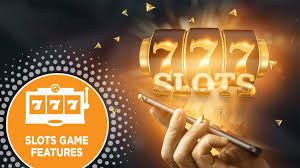Slots, often referred to as slot machines or pokies, are among the Slot most popular forms of entertainment in both traditional casinos and online gaming platforms. Known for their simplicity, visual appeal, and the thrill of potential big wins, slot games attract millions of players worldwide. But behind their flashing lights and captivating themes lies a fascinating history, intriguing mechanics, and a psychology of play that keeps users engaged.
A Brief History of Slot Machines
The origins of slot machines date back to the late 19th century. The first-ever slot machine, the Liberty Bell, was invented in 1895 by Charles Fey, a San Francisco mechanic. This rudimentary device featured three reels with five symbols: horseshoes, diamonds, spades, hearts, and the Liberty Bell. The machine became wildly popular due to its straightforward mechanism and the possibility of small, instant payouts.
Fast forward to the mid-20th century, and electromechanical machines revolutionized the industry. By the 1970s, video slots emerged, paving the way for digital innovation. Today, online slots dominate the market, offering players an almost infinite variety of themes, features, and jackpots.
How Slots Work
At their core, slots are a game of chance. Whether playing a classic reel machine or a modern video slot, the outcome is determined by a random number generator (RNG). This software ensures that every spin is independent and unbiased, making it impossible to predict or manipulate results.
Key Features of Modern Slot Games:
- Reels and Paylines: Traditional slots had three reels and one payline. Modern slots can have five or more reels and hundreds of paylines, offering diverse ways to win.
- Themes and Graphics: Developers craft intricate themes ranging from ancient civilizations and fantasy worlds to pop culture references, enhancing player engagement.
- Bonus Features: Features like free spins, multipliers, and interactive mini-games add layers of excitement and improve potential payouts.
- Progressive Jackpots: Some slots pool a portion of players’ bets into a collective jackpot, which can reach life-changing sums before being won.
Why Are Slots So Popular?
1. Accessibility
Slots are incredibly easy to play. Unlike table games such as poker or blackjack, there’s no need for complex strategies or deep knowledge of rules. Players simply set their bet, spin the reels, and enjoy.
2. Variety
From Egyptian treasures to space adventures, slot themes cater to all tastes. Online platforms offer thousands of options, ensuring players never run out of new games to try.
3. Instant Gratification
Every spin delivers instant results, creating a cycle of anticipation and reward that keeps players coming back.
4. Affordability
Slots can accommodate all budgets, with bets often starting as low as a few cents. This inclusivity makes them appealing to a wide audience.
5. Chance for Big Wins
The allure of jackpots, especially progressive ones, is a significant draw. Stories of players winning millions from a single spin add to the excitement.
The Psychology Behind Slot Play
The success of slot machines isn’t accidental—it’s deeply rooted in psychology. Features such as bright lights, engaging sound effects, and near-misses are designed to stimulate the brain’s reward centers. These elements create a sense of anticipation and keep players immersed.
The Role of Near-Misses
A near-miss occurs when the symbols almost align to form a winning combination. This can trick the brain into believing a win is just around the corner, encouraging continued play.
The Randomness Factor
While slots are random, players often perceive patterns or develop rituals they believe will increase their chances of winning. This illusion of control enhances engagement but underscores the importance of responsible gambling.
The Future of Slots
As technology advances, the world of slots continues to evolve. Virtual reality (VR) and augmented reality (AR) are being integrated into games, offering immersive experiences. Developers are also exploring blockchain-based slots, ensuring transparent gameplay and provable fairness.
Moreover, gamification trends—such as achievements, leaderboards, and social features—are being incorporated to appeal to a younger, tech-savvy audience.
Tips for Responsible Slot Play
- Set a Budget: Decide how much you’re willing to spend and stick to it.
- Understand the Odds: Remember that slots are games of chance, and no strategy can guarantee a win.
- Take Breaks: Avoid prolonged play sessions to maintain perspective.
- Play for Entertainment: Enjoy the game for its fun and engaging elements, not as a way to make money.
Conclusion
Slots are much more than a game; they are a blend of history, technology, and psychology that captures the imagination of players worldwide. Whether you’re spinning for fun or chasing a big jackpot, understanding the mechanics and mindset behind slots can enhance your gaming experience. Always remember to play responsibly and enjoy the journey, not just the destination.

